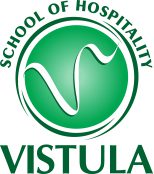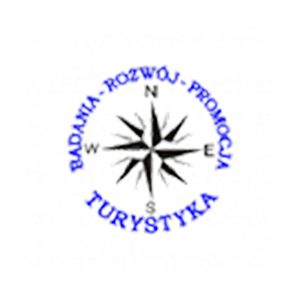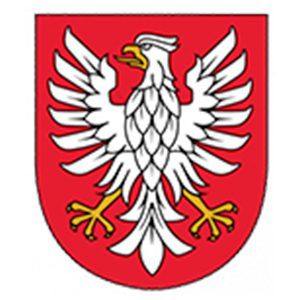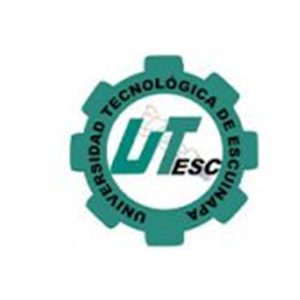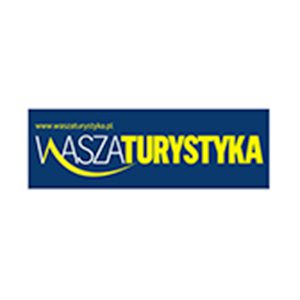Tourism in the sustainable development of Metropolitan cities
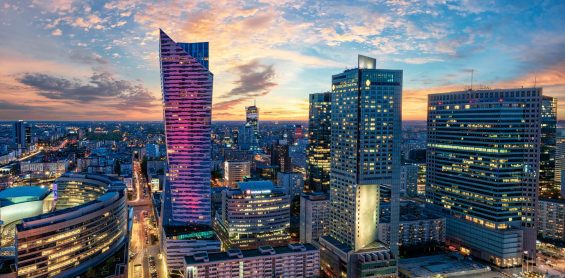
Day 1
Vistula School of Hospitality, Warsaw, 3 Stokłosy Str.
10:00 – 11:00 Registration, morning coffee
11:00 – 11:30 Conference opening, presentations by Honorary Patrons
11:30 – 13:00 Plenary session
13:00 – 14:00 Lunch, networking
14:00 – 15:30 Meetings in thematic groups
Session I – in Polish
Session II – in English
15:30 – 15:45 Coffee break, networking
15:45 – 17:15 Meetings in thematic groups
Session III – in Polish
Session IV – in English
19:00 Gala dinner/additional programme
Day 2
SGH Warsaw School of Economics, Aleje Niepodległości 162, building C
9:30 – 11:00 Plenary session
11:00 – 11:15 Coffee break, networking
11:15 – 12:45 Meetings in thematic groups
Session V – for doctoral students
Session VI – scientific-sector workshops
12:45 – 13:00 Coffee break, networking
13:00 – 14:00 Plenary session
13:00 – 13:45 – Meetings
13:45 – 14:00 – Closing of the conference
14:00 – 15:00 Lunch
Organisers
- Warsaw School of Economics – Tourism Department
- University of Warsaw – Faculty of Geography and Regional Studies
- Academy of Physical Education in Warsaw
- University of Social Sciences – Marketing and Tourism Department
- Vistula School of Hospitality
- Association for Research, Development, and the Promotion of Tourism
Scientific Committee
- Assoc. Prof. Teresa Skalska, PhD, Vistula School of Hospitality – Chairperson
- Prof. Elżbieta Biernacka, PhD BEng, Vistula School of Hospitality
- Prof. Grzegorz Gołembski, University of Zielona Góra
- Prof. Maciej Jędrusik, University of Warsaw
- Prof. Andrzej Kowalczyk, University of Warsaw
- Prof. Tadeusz Markowski, Uniwersity of Lodz
- Prof. Aleksander Panasiuk, Jagiellonian University in Kraków
- Prof. Anna Pawlikowska-Piechotka, Józef Piłsudski University of Physical Education in Warsaw
- Prof. Łukasz Sułkowski, University of Social Sciences
- Assoc. Prof. Jadwiga Berbeka, PhD, Cracow University of Economics
- Assoc. Prof. Robert Bęben, PhD, University of Gdańsk
- Assoc. Prof. Ewa Dziedzic, PhD, SGH Warsaw School of Economics
- Assoc. Prof. Wojciech Dziemianowicz, PhD, University of Warsaw
- Assoc. Prof. Magdalena Florek, PhD, Poznań University of Economics and Business
- Assoc. Prof. Sylwia Kaczmarek, PhD, Uniwersity of Lodz
- Assoc. Prof. Mirosław Mika, PhD, Jagiellonian University in Kraków
- Assoc. Prof. Armin Mikos von Rohrscheidt, PhD, Gnieźnieńska Szkoła Wyższa Milenium
- Assoc. Prof. Elżbieta Nawrocka, PhD, Wroclaw University of Economics and Business
- Assoc. Prof. Agata Niemczyk, PhD, Cracow University of Economics
- Assoc. Prof. Agnieszka Niezgoda, PhD, Poznań University of Economics and Business
- Assoc. Prof. Renata Seweryn, PhD, Cracow University of Economics
- Assoc. Prof. Jolanta Żyśko, PhD, Vistula School of Hospitality
Christos Anagnostopoulos, PhD, University of Central Lancashire – Cyprus - Anthi Avloniti, PhD, University of Central Lancashire – Cyprus
- Krzysztof Celuch, PhD, Vistula School of Hospitality
- Marcela Rebeca Contreras Loera, PhD, Universidad Tecnológica de Escuinapa
- Tanya Dabeva, PhD, prof. University of Economics, Varna
- Assoc. Prof. Loukas Glyptis, PhD, University of Central Lancashire – Cyprus
- Konstantinos Kakoudakis, PhD, University of Central Lancashire – Cyprus
- Stoyan Marinov, PhD, prof. University of Economics, Varna
- Maria Schicht, PhD, Mazowiecka Regionalna Organizacja Turystyczna
- Bartłomiej Walas, PhD, University College of Tourism and Ecology
- Denka Zlateva, PhD, prof. University of Economics, Varna
Organising Committee
- Maciej Dębski, PhD, Ass. Prof. – Chairman;
mdebski@san.edu.pl - Olena Kulykovets, M.A. – Secretary;
konfturystyczna@san.edu.pl - Piotr Kociszewski, PhD
p.kociszewski@vistula.edu.pl - Anna Molęda-Kompolt, M.A.
amoleda@san.edu.pl
Conference languages
- Polish
- English
Form and cost of participation
- Participation without publication – PLN 450 gross
- Full participation – 2 days of the conference, accompanying events, publication – PLN 1,190 gross
- Doctoral students – session for doctoral students – 1 day of the conference, publication – PLN 700 gross
- Doctoral students – full participation – 2 days of the conference, accompanying events, publication – PLN 890 gross
Accommodation
Conference participants pay the costs of accommodation on their own.Recommended hotels, offering a discount, are listed below:
The organisers provide conference participants with the opportunity to publish positively reviewed articles in publications guaranteeing at least 20 MNiSW points.
List of publications
- The journal “Miscellanea Geographica Regional Studies on Development”, 70 points, publisher: Faculty of Geography and Regional Studies of the University of Warsaw; editor-in-chief: Maciej Jędrusik, articles in English only; Check the page Here
- The journal “International Journal of Management and Economics”, 40 points, publisher: Collegium of World Economy, Warsaw School of Economics; editor-in-chief: Adam Szyszka, articles in English only. Check the page Here
- “The Journal of Intercultural Management (JOIM)”, 20 points, publisher: Wydawnictwo Społecznej Akademii Nauk w Łodzi; editor-in-chief: Łukasz Sułkowski, articles only in English. Check the page Here
- The journal “Turystyka Kulturowa”, 20 points, publisher: KulTour Poznań; editor-in-chief: Armin Mikos von Rohrscheidt, articles in Polish and English. Check the page Here
- The journal “Prace i Studia Geograficzne”, 20 points, publisher: Faculty of Geography and Regional Studies, University of Warsaw; editor-in-chief: Małgorzata Durydiwka, articles in Polish. Check this page Here
- The journal “Studia Periegetica”, 20 points, publisher: WSB University in Poznań; editor-in-chief: Marek Nowacki, articles only in English, available in open access. Check the page Here
- A chapter in a scientific monograph (3), publisher:
a. in the Polish language:
I. Academy of Finance and Business Vistula (Vistula University Group) (20 points),
II. Social Academy of Sciences (20 points),
b. In English:
I. SGH Warsaw School of Economics (20 points).
Pursuant to the rules of the Regulation of the Ministry of Science and Higher Education of 22 February 2019 on evaluation of the quality of the scientific activity, §12, item 2. 4, section 2;
More information Here
A few words from the Conference organisers
The end of the 20th century and the first decades of the 21st century, have been characterised by the intensive growth of cities and the tourist industry, and by the ever-growing awareness of development-related challenges, facing the whole human race. Large cities are at the heart of these major phenomena. Their populations are constantly growing; they are places where business, cultural, and scientific activities, are located. They also attract an ever-growing number of tourists. The fact that so many functions co-exist within the limited space of these cities, is both a chance for development, but also a source of potential conflicts.
The organisers of the conference have every intention of turning the event into a meeting of scientists and experts, representing the widest possible range of fields, concerned with creating and monitoring new developments in the tourist industry. The conference will aim at discussing the problems, which are of particular importance, in the context of the cities’ sustainable growth. The conference, as an international event, will allow participants to present opinions and findings coming from their different countries, cultures, and environments.
Topics:
Tourism versus global trends
- Demographic changes and the resulting challenges
- Globalisation processes and urbanisation
- Cross-cultural contacts
Tourism versus Sustainable Development Goals (SDG)
- Tourism in a metropolitan space – tourism and other functions of urban space, tourism, and gentrification, mobility, creating value, and landscape.
- Tourism as an element of building the metropolitan identity – image and promotion, heritage and its interpretation.
- Actions promoting tourism-related responsible consumption and production in metropolitan areas, – the management of resources.
- Tourism versus the living standards of inhabitants of metropolitan cities. Search for synergy, conflict resolution.
- Tourism – an element of the economic growth of metropolitan cities, entrepreneurship, workplaces, costs and benefits, and their distribution, fighting with poverty.
- Institutional support of tourism development – co-operation with local authorities, urban activists, and inhabitants. Structures supporting tourism growth, tourism as an element of policy, and the actions of city authorities.
- Modern technologies and innovations facilitating sustainable development of tourism in metropolitan cities.
- Inclusivity of tourism in metropolitan cities.
A few words from the Conference organisers
The end of the 20th century and the first decades of the 21st century, have been characterised by the intensive growth of cities and the tourist industry, and by the ever-growing awareness of development-related challenges, facing the whole human race. Large cities are at the heart of these major phenomena. Their populations are constantly growing; they are places where business, cultural, and scientific activities, are located. They also attract an ever-growing number of tourists. The fact that so many functions co-exist within the limited space of these cities, is both a chance for development, but also a source of potential conflicts.
The organisers of the conference have every intention of turning the event into a meeting of scientists and experts, representing the widest possible range of fields, concerned with creating and monitoring new developments in the tourist industry. The conference will aim at discussing the problems, which are of particular importance, in the context of the cities’ sustainable growth. The conference, as an international event, will allow participants to present opinions and findings coming from their different countries, cultures, and environments.
Topics:
Tourism versus global trends
- Demographic changes and the resulting challenges
- Globalisation processes and urbanisation
- Cross-cultural contacts
Tourism versus Sustainable Development Goals (SDG)
- Tourism in a metropolitan space – tourism and other functions of urban space, tourism, and gentrification, mobility, creating value, and landscape.
- Tourism as an element of building the metropolitan identity – image and promotion, heritage and its interpretation.
- Actions promoting tourism-related responsible consumption and production in metropolitan areas, – the management of resources.
- Tourism versus the living standards of inhabitants of metropolitan cities. Search for synergy, conflict resolution.
- Tourism – an element of the economic growth of metropolitan cities, entrepreneurship, workplaces, costs and benefits, and their distribution, fighting with poverty.
- Institutional support of tourism development – co-operation with local authorities, urban activists, and inhabitants. Structures supporting tourism growth, tourism as an element of policy, and the actions of city authorities.
- Modern technologies and innovations facilitating sustainable development of tourism in metropolitan cities.
- Inclusivity of tourism in metropolitan cities.
Prof. Lučka Kajfež Bogataj, University of Ljubljana
Intergovernmental Panel on Climate Change (IPCC), Nobel Peace Prize winner in 2007. Professor of climatology at the University of Ljubljana, currently involved in the study of climate change scenarios and their impact on ecosystems and human welfare.
In 2008, she was elected the vice-president of the IPCC; in 2016-2017 member of the UNESCO Group of Experts on the Declaration of ethical principles in relation to climate change. Participant of many national and international scientific projects, author of over 400 scientific, technical and didactic papers as well as about 110 publications in peer-reviewed journals. Keynote speaker at many national and international scientific conferences, an expert on climate change, its impact on the environment, sustainable development and issues of social justice.
Prof. Lučka Kajfež Bogataj, University of Ljubljana
Intergovernmental Panel on Climate Change (IPCC), Nobel Peace Prize winner in 2007. Professor of climatology at the University of Ljubljana, curr…

Wojciech Dziemianowicz, associate professor at the University of Warsaw
holder of a habilitation degree; since 2004, an employee of the Faculty of Geography and Regional Studies, currently in the Department of Urban Geography and Spatial Planning.
Since 2002, member of the Committee for Spatial Economy and Regional Planning of the Polish Academy of Sciences. He cooperates with many self-governments of voivodships, cities and municipalities. Co-creator of regional and local strategies as well as functional areas. In 2016-2018, he was a leading expert in the process of preparing Strategy #Warsaw2030. Presently involved in co-creating development strategies for the Warmian-Masurian, Podlasie, Greater Poland and Opole voivodeships.
Wojciech Dziemianowicz, associate professor at the University of Warsaw
holder of a habilitation degree; since 2004, an employee of the Faculty of Geography and Regional Studies, currently in the D…
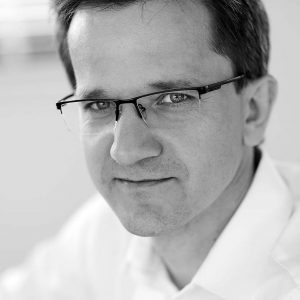
Olivier Ponti, as the leader of the ForwardKeys Insights team,
is one of the world’s most authoritative experts in travel research and destination marketing. He gives dozens of conference presentations and media interviews a year, cross-referencing ForwardKeys’ considerable data with numerous other sources, to identify new travel trends;
forecast future travel patterns; reveal the impact of events on travel and provide deep insights into the travellers of tomorrow. Previously, Olivier was manager of the tourism research department of the Paris Visitors & Convention Bureau and Research Manager, Amsterdam Marketing, where he helped attract tourism and business investment to the city by judicious use of market research and compelling presentation. Until June 2018, he was also Chairman of the Research & Statistics working group of European Cities Marketing (ECM).
Olivier Ponti, as the leader of the ForwardKeys Insights team,
is one of the world’s most authoritative experts in travel research and destination marketing. He gives dozens of conference presentat…

Due to the epidemiological situation, we are extending the registration until May 30th, 2020.
